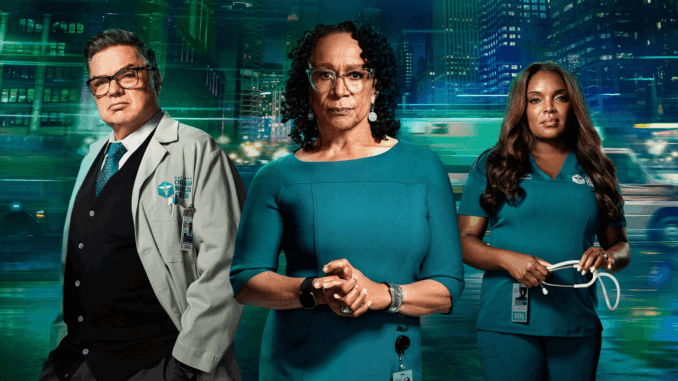
In the bustling landscape of television, “Chicago Med” stands out not just as an entertaining medical drama, but as a subtle yet potent force in shaping public perception and discourse around modern healthcare. As 2025 unfolds, the series continues to demonstrate its unique ability to transcend mere entertainment, transforming complex medical and ethical issues into digestible, thought-provoking narratives that resonate deeply with its audience. It’s a show that consistently asks more of its viewers than just passive observation; it invites them into a dialogue about life, death, and the very definition of care.
What sets “Chicago Med” apart in its current run is its commitment to authenticity, often partnering with medical professionals to ensure accuracy in its portrayal of procedures, conditions, and hospital protocols. This dedication to realism extends beyond the clinical, venturing into the systemic flaws and triumphs of the healthcare industry. Recent storylines have fearlessly explored the nuances of medical malpractice, the ethical considerations of experimental treatments, and the dire consequences of healthcare disparities. This isn’t just about saving lives; it’s about understanding the intricate web of decisions, policies, and human biases that influence who gets care and how.
The show also excels at humanizing the often-overlooked aspects of medicine. We see the burnout of nurses, the moral fatigue of doctors, and the emotional toll that comes with witnessing constant suffering. Characters are not infallible heroes but flawed individuals grappling with immense pressure, personal sacrifices, and the weight of their responsibilities. The recent emphasis on the mental well-being of the medical staff, particularly through storylines involving [mention a general mental health arc, e.g., “Dr. Charles’s ongoing efforts to support his colleagues’ psychological health”], has been a groundbreaking move, shining a much-needed light on an issue often swept under the rug in real-world hospitals.
Moreover, “Chicago Med” has become adept at integrating contemporary societal issues into its medical narratives. Whether it’s the impact of the opioid crisis, the challenges of emergency preparedness in an increasingly unpredictable world, or the complexities of patient privacy in the digital age, the show uses its platform to educate and inform. It encourages viewers to think critically about headlines and policy debates, offering a relatable context through the personal experiences of its characters. This approach elevates the series from a simple drama to a public service, subtly influencing discussions in living rooms across the nation.
The strength of “Chicago Med” also lies in its ensemble cast, whose dynamic performances bring depth and credibility to every scene. The interactions between the diverse group of doctors, nurses, and administrators reflect the multicultural reality of a major urban hospital. Their differing perspectives and approaches to patient care often lead to compelling internal conflicts, highlighting that there isn’t always one “right” way to heal. This nuanced portrayal of medical decision-making is a testament to the show’s maturity and its willingness to explore ambiguity.

As we look towards the future, “Chicago Med” appears poised to continue its impactful run, promising more relevant, emotionally resonant, and medically insightful narratives. It remains a vital organ in the television landscape, pumping out stories that not only entertain but also enlighten, provoke thought, and contribute to a broader understanding of the extraordinary world of healthcare. It is, unequivocally, the heartbeat of Gaffney, and a powerful voice in the ongoing dialogue about what it means to be cared for in the 21st century.